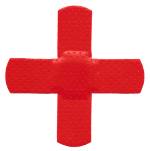Basic First Aid: Asking the Right Questions
Author: tiger Published Under: Health

One of the most important factors in preforming successful first aid is responding correctly to the situation. This is something that is not always easy, as it can be hard to remember to stay calm and objective, especially when it is a loved one at risk. However, this is very important, as it is the best thing you can do to help the victim.
Often, the need to objectively look at the situation is at odds with the victims desires, who may be argumentative, cross, or scared. Understanding this is essential, because it is important to not get angry or upset with them, instead focusing on what you need to do to help them.
The first step when preforming first aid should be to complete the DRSABC Sequence, which will help determine if the person is in immediate danger and help provide life saving treatment. The next step should be to preform an assessment of the situation, so you know how best to proceed.
History and Personal Information
One of the most important steps in dealing with any situation is to understand history, with first aid being no exception.
Much of the history can be gleamed by simply speaking with the victim, which can also be an excellent way to keep their mind focused. However, if they are unconscious or not coherent, ask the people around you, as they may know the victim or might have seen the accident.
Asking the Right Questions
Begin by asking the person their name. This serves many purposes and can often help to keep the person focused. Use the persons name as you converse, as this can also be comforting to them.
If the injured person is a child ask them their age and how to contact their parent.
Next, try to determine the problem. This may be rather obvious, but this is certainly not always the case. Often, when you ask a person what their problem is, they will also include their history, which can be very important when evaluating the severity of the situation and knowing how to respond. It may be necessary to lead them in your questioning, asking them about their head, chest, stomach, and other areas, to help provide direction and get the information you need.
If the person does not offer up this information on their own, ask them about their medical history. Make sure to ask about allergies, diabetes, and heart diseases, as this will help you gauge the needed response.
Also ask about medications and drugs, as this will often steer the treatment or could very well be part of the problem. It is important to find out when they last ate as well, as this can have impacts on treatment, especially if they have a stomach wound or suffer from diabetes.
When questioning the victim, it is important to evaluate their responses and if they are unclear, turn to a bystander. Bystanders will often have a much different and, perhaps, better understanding of what happened, or at the very least a different perspective than the victim.
Also, always check the victim for any types of medical identification, such as medic alert bracelets or necklaces. Most people with medical conditions wear something to indicate this in the event of an emergency.